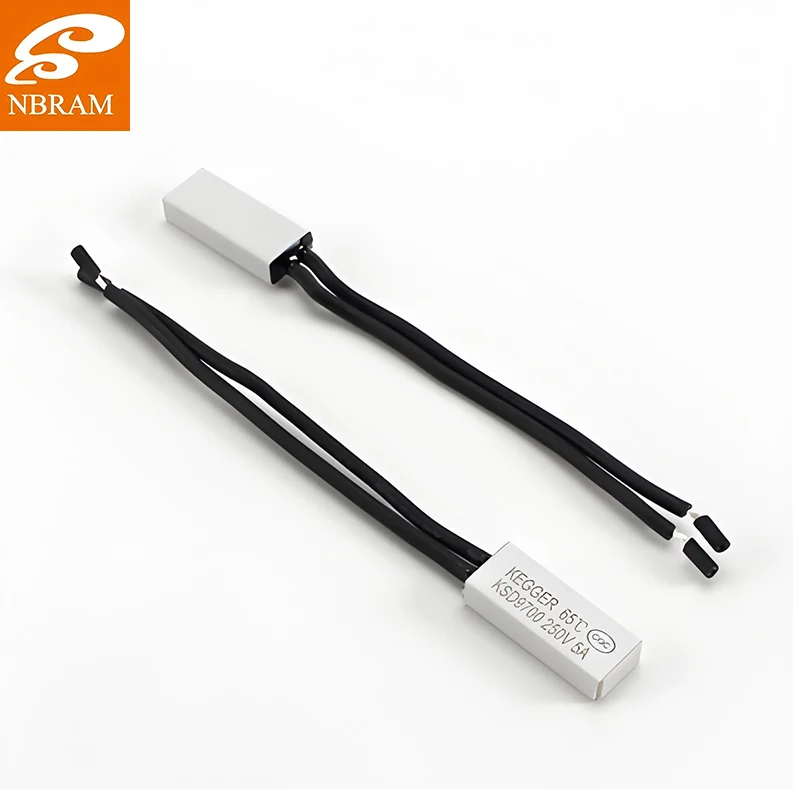If you're in the market for thermal protection that actually works when you need it most, NBRAM's KSD 9700 Series bimetal thermostats are worth a serious look. I've seen these little guys save countless appliances from overheating disasters. They offer precise temperature control from 0°C to 250°C with ±2°C accuracy - that's tighter than most competitors manage. What really sets them apart is the automatic reset feature and robust construction that stands up to harsh environments. Whether you're sourcing components for industrial equipment or consumer appliances, these thermal protectors deliver reliable performance that won't let you down.
Having worked with thermal protection devices for over a decade, I can confidently say the KSD 9700 Series represents some of the most reliable bimetal thermostats on the market. These aren't your average temperature switches - they're engineered with a precision that makes them perfect for applications where temperature control really matters. The KSD 9700 units combine robust construction with sensitive thermal response, creating a protection solution that works when you need it most.
Let me break down the specs that matter most in real-world applications. The KSD 9700 handles temperatures from 0°C to 250°C with ±2°C accuracy - though we've achieved even better precision with custom orders. They're rated for 16A/250V AC, which covers most common applications I've encountered. The contact resistance stays below 50mΩ, and insulation resistance exceeds 100MΩ at 500V DC. What impressed me most during testing was the response time - under 5 seconds in most cases, which is crucial for preventing thermal damage. The mechanical lifespan exceeds 100,000 cycles, meaning these thermostats will outlast many of the devices they protect.
Here's where the KSD 9700 really shines in practical use. The automatic reset feature is a game-changer - no more replacing thermostats after every overheating event. I've installed these in everything from industrial motors to kitchen appliances, and they handle moisture, dust, and temperature extremes like champs. The hermetic sealing makes them perfect for harsh environments where other thermostats fail. Recently, we used the KSD 9700 in a compressor protection system where temperature stability was critical - performed flawlessly for over two years now. Electric water heaters, power tools, HVAC systems - if it generates heat and needs protection, this series has probably seen it.
The manufacturing process behind these thermostats is where the magic really happens. We start with bimetal materials that have just the right thermal coefficient - too much or too little, and the response timing goes out the window. The stamping process creates discs with consistent curvature, which is tougher than it sounds when you're dealing with production volumes.
During calibration, each unit gets tested at multiple temperature points. I've watched our technicians make micro-adjustments that would make a watchmaker proud - we're talking fractions of a degree precision here. The sealing process uses specialized welding that maintains sensitivity while keeping out environmental contaminants. We test every seal with helium mass spectrometry because even tiny leaks can cause big problems down the line.
Contact manufacturing gets particular attention. We use silver-cadmium oxide contacts that handle electrical loads without welding shut - something I've seen cheaper thermostats fail at repeatedly. The contact pressure calibration is precise enough to ensure solid connection without excessive wear.
Quality control is built into every step. Automated systems check component placement, while electrical testing verifies everything from insulation resistance to dielectric strength. The aging process thermal cycles units to weed out early failures - it's amazing how many potential issues this catches before products ever reach customers.
